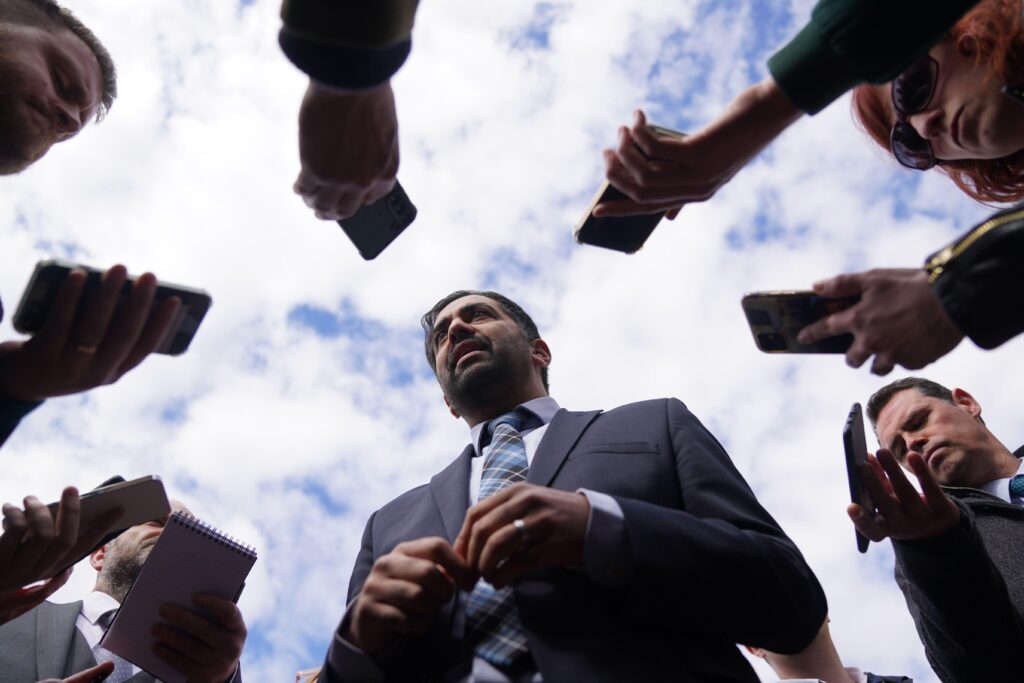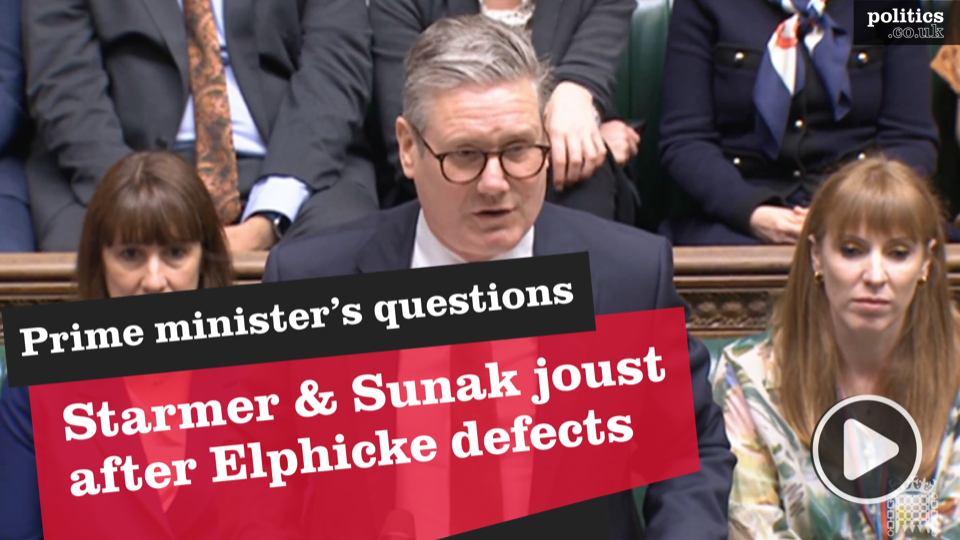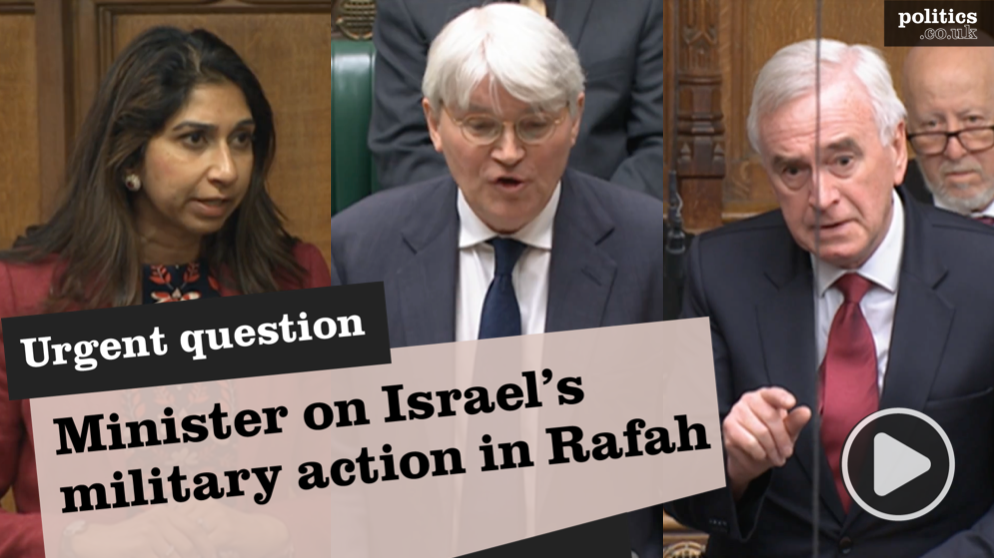British politics boasts a curious surplus of beleaguered premiers leading tailspinning governments. The Westminster case is well-rehearsed: rolling stories of sleaze, factional conquests and electoral comeuppance have trapped Rishi Sunak within a cycle of steady political disintegration. Conservative parliamentarians — Sunak acolyte and antagonist alike — view the upcoming election with a strengthening sense of resigned fatalism.
But consider also the Scottish context: first minister Humza Yousaf faces two “no confidence” votes next week, one in himself and one in the administration he leads; the Scottish National Party (SNP), the country’s ruling dynasty since 2007, faces a political reckoning on multiple fronts; and, in turn, the visage of party unity — nurtured under Nicola Sturgeon — can no longer be sustained.
It is a striking comparison. The Scottish parliament at Holyrood was once heralded as an opportunity to do politics differently — a forum that the supposedly less enlightened Westminster system, defined by its majoritarian, confrontational elements, would feel compelled to imitate. But Scotland’s multi-party democracy is now stricken by bitterness and score-settling; the acrimony felt between rival actors puts even SW1 shame.
***Politics.co.uk is the UK’s leading digital-only political website, providing comprehensive coverage of UK politics. Subscribe to our daily newsletter here.***


As far as Humza Yousaf is concerned, the immediate trigger of his present peril was the decision to fire two serving Green ministers — calling time on the Green-SNP Bute House agreement and the Holyrood majority it empowered. In fairness to the first minister, it was his former coalition partners who threatened to bolt first, having called an emergency membership ballot to pronounce on the future of power-sharing. It came after the Scottish government scrapped one of its key decarbonisation commitments. In reality though, the strains between Holyrood’s two main pro-independence parties had been growing in recent months: and relatively few SNP representatives, especially those at Westminster, will mourn the coalition’s admittedly disorderly demise.
But the big political problem for Yousaf is that, before he ditched the SNP’s power-sharing partners, he was one of the Bute House accord’s most stalwart defenders. In the 2023 SNP leadership election, Yousaf forcefully made the case for a formal pro-independence majority at Holyrood against sceptical rivals Kate Forbes and Ash Regan. As first minister, Yousaf even described the Green-SNP pact as “worth its weight in gold”. In this way, Yousaf’s critics will argue that his decision to axe the coalition is the latest instance of the FM bending away from the agenda he pursued during the leadership election — and towards that of Forbes.
On Friday of course, Yousaf vowed to fight on — but the Holyrood arithmetic is daunting: the SNP has 63 MSPs, two short of an overall majority in the 129-strong chamber. It means, with the Greens, Scottish Conservatives, Labour and Lib Dems currently committed to ousting the FM via confidence vote, Yousaf is left with a single recourse: Holyrood’s lone Alba representative, Ash Regan. The SNP turncoat joined former first minister Alex Salmond’s breakaway party last year in a defection Yousaf described as “no big loss”.
In other terms, the serving first minister — continuity Sturgeon — now relies on the backing of Salmond’s parliamentary apprentice. The former FMs’ mutual scorn is legendary — but Salmond is now entrusted with saving any legacy Sturgeon has left.
Still, this is far from the only curiosity to arise in Scottish politics this week. Consider too the position of the Green MSPs set to vote “no confidence” in a government they served loyally mere days ago. And what of veteran nationalist Fergus Ewing MSP, who was briefly suspended from the SNP — presumably on Yousaf’s orders — for voting against a Green minister in a recent confidence vote? The first minister now seems entirely aligned with the Ewing position.
In the end, these are the sort of political idiosyncrasies that arise in poorly run parties and governments.
***Politics.co.uk is the UK’s leading digital-only political website, providing comprehensive coverage of UK politics. Subscribe to our daily newsletter here.***
Speaking of: prime minister Rishi Sunak faces his own period of political jeopardy next week as the Conservatives cruise to weighty losses at the local elections. Once the results are digested, if recent briefings are anything to go by, the prime minister could soon face a no confidence ballot of his own.
But the parallels between Yousaf and Sunak, those besieged and exposed leaders, run deeper still. Both are accidental premiers, having risen to power after the untimely exit of a predecessor (or, in Sunak’s case, two predecessors). Yousaf only assumed the post of first minister in the wake of Sturgeon’s shock departure, and after potentially more suitable successors — such as Neil Gray, Màiri McAllan and Angus Robertson — ruled themselves out. Sunak’s unorthodox journey to No 10, via two quick-fire leadership contests, hardly needs rehearsing. And one wonders how successful he might have been in either race had the former defence secretary, Ben Wallace, coveted high office.
As a consequence, in part, of their irregular paths to power, both Yousaf and Sunak face tricky party-management puzzles. A significant section of the Conservative Party views every parliamentary set-piece as a means to undermine Sunak’s authority. The first minister’s intra-party critics, meanwhile, are beginning to find their voice: just before his government imploded on Thursday, Yousaf faced a mini rebellion of six SNP MSPs over his justice reform bill. One of the six who chose to abstain was Kate Forbes — the other five supported the onetime leadership contender in the 2023 race. If the FM survives his no confidence vote(s) next week, this emerging awkward squad could be crucial in shaping his long-term political trajectory.
Along these lines, Yousaf and Sunak’s respective attempts to thwart the political tides are rendered futile by this unanswerable malaise. Having inherited parties fatigued and skewed by power, a narrative of decline has set in for both premiers. Yousaf’s decision to terminate the Bute House accord is a perfect case in point: by ditching the Greens, the first minister intended to signal a profound new departure with a genuine reset, thus willing some authority into existence. But the FM, at once, vastly overplayed his hand and underestimated the political forces amassing against him. One can only imagine if this current parlous moment was war-gamed by Yousaf’s inner political circle in advance; had it been, one assumes, the first minister would surely have pursued a different path.
Meanwhile, Rishi Sunak showed signs of making gains in recent days with announcements on defence and welfare. But No 10 well knows that any marginal advances on policy will be dismissed as meaningless if the Conservative Party faces a torrent of losses at the local elections.
***Politics.co.uk is the UK’s leading digital-only political website, providing comprehensive coverage of UK politics. Subscribe to our daily newsletter here.***
Ultimately, then, beyond the immediate electoral contexts, perhaps there is a larger story here about what makes a politician suitable to lead a party and government. Both Yousaf and Sunak rose through the ranks of parties locked in government, (entering parliament in 2011 and 2015 respectively), and have never been exposed to the rigours of opposition — a period former PMs have cited as crucial in honing their politics and strategic nous. Were Yousaf and Sunak simply vaulted up the greasy poll before they possessed the political skills demanded by high office?
This question poses a further analytical dilemma; for in our attempts to contextualise both Sunak and Yousaf’s political problems, how do we account for their agency to make bad decisions — informed by such political inexperience — against a structural backdrop defined by such dire inheritances — from police probes to manoeuvring predecessors?
In the end though, however you frame their political origins or periods in government, Yousaf and Sunak look destined to share the same fate. With elections and coup opportunities looming, the question is when — not if — they depart the political scene.
This brings us to the final parallel. For Yousaf and Sunak political perils benefit one figure above all others: Keir Starmer. The Labour leader can head into the next election pointing to the psychodramas both north and south of the border — a recipe for advance across all manner of “walls” — red, tartan and blue. Of course, Starmer tried to forge his own headlines this week with a significant announcement on rail nationalisation. Labour, strikingly, struggled to cut through the noise generated by the SNP and Conservative chaos machines.
Josh Self is Editor of Politics.co.uk, follow him on X/Twitter here.
Politics.co.uk is the UK’s leading digital-only political website, providing comprehensive coverage of UK politics. Subscribe to our daily newsletter here.











